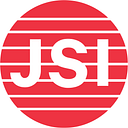Building Strategic Partnerships to Strengthen Health Service Delivery in Zambia
Photos: Jason Mulikita for JSI
Linda Milambo, a 36-year-old nurse, walks through the waiting area of the bustling Mwanjuni Health Post in Chibombo, Zambia checking on the patients waiting to be seen. She has been overseeing the day-to-day operation of the site for five years and, for the last four, has done so with Inyambo Siluka by her side. Inyambo is a hub manager for the USAID DISCOVER-Health project, whose staff pair with those from the Ministry of Health (MOH) in a “buddy” system to cultivate communication, collaboration, and trust as they work together. Linda and Inyambo’s goal is to improve access to integrated and person-centered health services, including HIV treatment and prevention, by strengthening the overall health system and service delivery.
Linda shares how the health post serves about 150 clients a day, providing efficient assessment and treatment for each person. The ease clients and providers now enjoy was not always a guarantee, however. Linda, Inyambo and their team have worked hard to make the clinic a private and comfortable place for clients to access health services.
“Here at Mwanjuni, when it was just the original older building, there was nowhere really for clients to sit comfortably,” Inyambo explains. “There was no shade outside. It wasn’t conducive to efficient service delivery. But now, with the addition of the prefabricated structures, this clinic is fantastic for both clients and providers. The flow of clients works well, and there is more space for everyone; clients can be seen promptly and privately. We also have a laboratory on site to ensure a quick turnaround for test results.”
“The impact on the clients of this partnership is huge,” Linda says. “They’re so happy, and the smooth-running of the services genuinely makes a difference in whether someone chooses to access a health care service, or doesn’t. Clients won’t bother coming if they think they will be waiting for hours in a crowded place. Now, with what we offer, they’re motivated to come and that improves health outcomes.”
It’s not just infrastructure improvements that have resulted in positive changes at Mwanjuni; efforts to strengthen the broader health system at Mwanjuni and beyond have been critical. The project and MOH have made significant progress at every level of the health system across two provinces, including in case management, policies and guidelines, laboratory services, data and information systems, training, and learning exchange among staff.
“Yes, this site has transformed–we offer a great service to our clients and they’re happy to come here,” Linda says, “but it’s our partnership with the DISCOVER-Health people that stands out. For example, we’ve been shown the Direct Service Delivery model, taking drugs to our clients in the community at their convenience. It’s been life changing for clients. We feel so well supported and guided by our partners.”
The investments in training have certainly made a difference for Sharon, a 17-year-old who comes to the clinic with her friends to get health information and services.
“I came to the clinic first on my own and I really liked Stella,” Sharon says, referencing the peer mentor she was introduced to at the clinic. “I trust her. I did an HIV test, which was negative, and we talked through my situation. After that, I decided to start PrEP. I told my friends about how Stella and the clinic could help us, and now we all come together. This clinic is a safe space for all of us to get together and Stella gives us the guidance and information we need. I feel great to be on PrEP and in control of my future.”
Linda explains that stories like Sharon’s make her excited to go to work each day. “This career, my dream of providing quality health services, it’s always been within me. I love interacting with clients and find it very fulfilling helping people who need it,” she says.
The other motivator for Linda is the scale of the changes being made. The facility and training refinements Inyambo oversees at the Mwanjuni Health Post are just one example of the project’s technical assistance model in action. DISCOVER-Health serves 183 health sites across 2 provinces in Zambia, making tangible improvements to day-to-day service delivery and client experience while also strengthening the health system as a whole. Across all of the project’s sites, the team has elevated the client experience; for example, 97% of clients continued on their ART treatment in 2020 compared to 99% in 2024. Improved, more open-minded and compassionate provider attitudes and enhancements to overall health care quality, including modernizing facilities and introducing person-centered service delivery models, contributed to increased client continuation. Viral suppression rates have also risen from 93% in 2020 to 98% in 2024, which indicates that clients receiving treatment are experiencing overall improved health outcomes.
Doing this work hand-in-hand with the MOH ensures that the changes will become institutionalized within the national health system and will be sustained long after the end of the DISCOVER-Health project.
“We’re providing a quality health service, and thanks to the investment in training and mentorship, it’s now a baton we pass on confidently to our partners,” Inyambo says.
“We’re proud to carry on the legacy of what we have created here with DISCOVER-Health and we feel motivated to do it,” Linda says. “It’s a challenge to pick it up, but we will rise to it. All this hard work is being left in our safe hands!”
DISCOVER-Health operates a technical assistance model, successfully transitioning sites and services to the MOH. The project grounds its work in technical partnerships with MOH counterparts, supporting them to efficiently manage their health services. This ranges from providing training opportunities to working side-by-side at the facility level. The project is heavily involved in multiple MOH technical working groups across the project’s scope of work, which helps ensure the service rollout’s collaborative nature and mutual buy-in from MOH and project staff.
